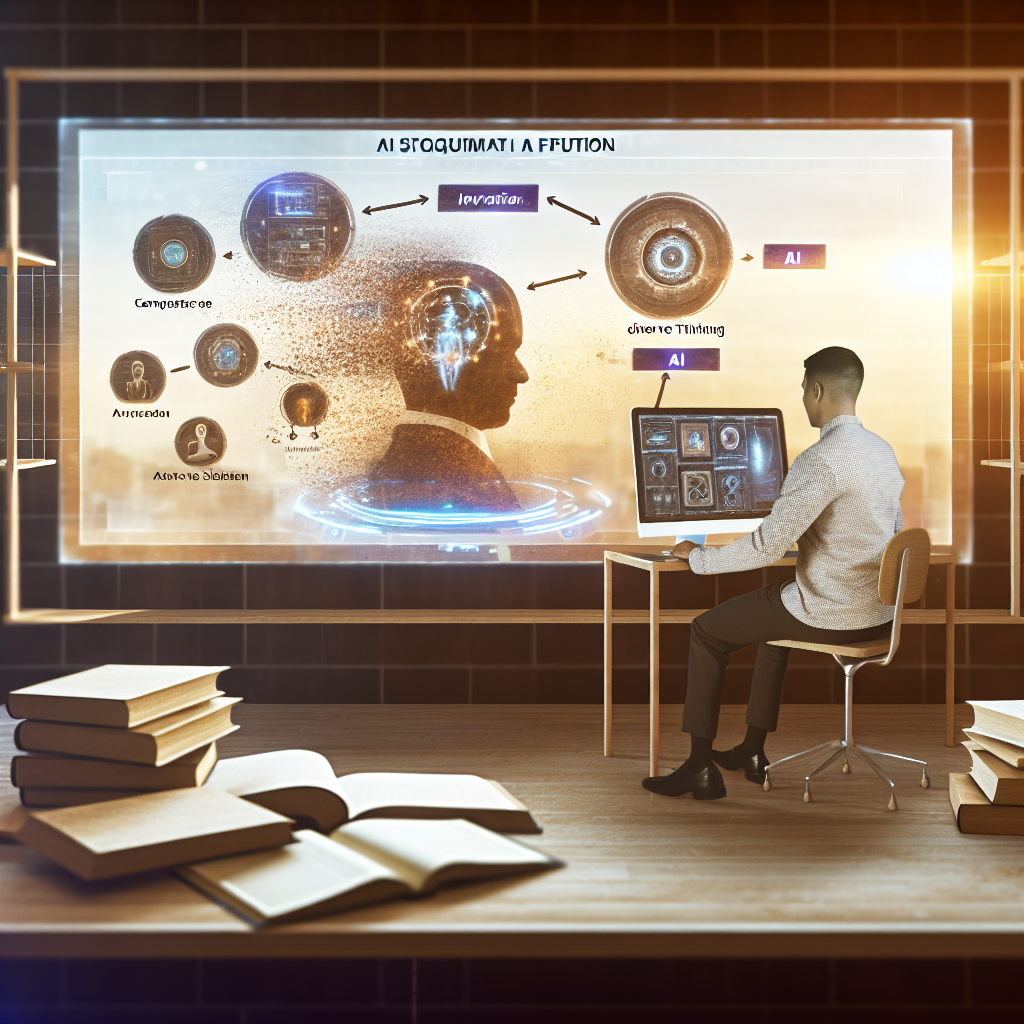
“`html
Introduction: The Intersection of Artificial Intelligence and Expertise
The future of work has been a hot topic for years, but with the rise of Artificial Intelligence (AI), the landscape is changing faster than ever. Organizations are rapidly rethinking roles, responsibilities, and how expertise is defined. At this pivotal moment, businesses leveraging AI are discovering new ways to foster innovation and productivity.
AI’s transformative power lies not only in what it can automate, but also in how it enhances human decision-making and creates opportunities previously unimagined. In this blog, we will explore how future work trends are redefining expertise and what this means for industries and individuals alike.
Shifting Definitions of Expertise
Traditionally, expertise was tied to years of experience and highly specialized knowledge. However, with advancements in AI and machine learning, the definition of expertise is evolving. Here are the trends that are shaping this transformation:
- Collaborative AI Systems: AI tools such as GPT-4 and specialized algorithms are enabling employees to make informed decisions without requiring a deep understanding of the domain.
- Data-Driven Decision-Making: Modern workplaces are relying on data analysis tools powered by AI, making expertise in data interpretation just as valuable as technical know-how.
- Dynamic Skill Requirements: The ability to learn fast and adapt to new AI-integrated workflows is becoming more critical than static, traditional expertise.
As AI assists in processes like competency mapping and task management, it levels the playing field for a broader range of professionals.
Future Work Trends Driving the Change
The following workplace trends are fundamentally reshaping how organizations think about proficiency and success:
1. Human-AI Collaboration
We are entering an age where most work is a blend of human creativity and AI precision. For example:
- In healthcare, AI is supporting doctors by analyzing X-rays for abnormalities quicker than ever.
- In logistics, AI tools optimize delivery routes, leaving coordinators to make strategic decisions.
- In marketing, predictive analytics tools help teams identify customer needs in real-time with actionable insights.
Moving forward, expertise will involve understanding how to strategically deploy AI tools rather than being replaced by them.
2. Upskilling and Reskilling
Millions of workers are embracing lifelong learning to stay competitive in an AI-driven economy. Emerging platforms offer training in AI-powered tools, coding, and soft skills:
- Organizations are investing in employee development to fill knowledge gaps.
- Microlearning and on-the-job training formats are providing focused AI education.
To maintain their relevance, professionals will need to continuously adapt to emerging technologies shaping tomorrow’s workplaces.
3. Blockchain and AI for Trust
As workplace automation expands, blockchain technology is being combined with AI to certify credentials and verify expertise. This bolsters trust when collaborations involve remote teams or cross-border projects.
AI as an Enabler and Equalizer of Expertise
AI is not about replacing human expertise; it’s about amplifying it. Here’s how that works:
Enhanced Accuracy
Tools such as natural language processing and predictive analytics have enhanced the accuracy of human decision-making. Instead of relying on intuition, experts can now build their decisions on data-driven insights.
Breaking Down Barriers
AI systems significantly lower the technical barriers for those entering new fields. For instance:
- Designers without a coding background can use AI tools to build complex applications.
- Non-specialists can gain domain expertise by leveraging insights from AI-powered recommendation systems.
Automation for Creativity
By automating repetitive tasks, AI gives professionals time to focus on out-of-the-box thinking and strategy.
Industries Most Impacted by AI-driven Expertise
Several industries are already seeing a shift in expertise as AI integration grows. Here’s a breakdown:
Healthcare
AI diagnostics and treatment planning are redefining what it means to be a medical expert.
Finance
AI is replacing traditional knowledge-based roles in fraud detection and risk assessment, relying on pattern recognition and predictive models.
Education
Personalized learning platforms, powered by AI, enable educators to customize curriculums based on student data.
Manufacturing
AI-driven robotics are enhancing precision and quality while reducing dependency on seasoned manual labor.
Challenges in Redefining Expertise through AI
While AI is instrumental in breaking new ground, it poses challenges that need addressing:
- Ethical Dilemmas: Ensuring fairness and accountability in AI-led decision-making requires oversight.
- Bias in Algorithms: AI systems need continuous updates to mitigate inherent biases and deliver reliable results.
- Access Gaps: Disparities in access to AI tools may exacerbate inequality in the global workforce.
Addressing these concerns will ensure the technology is inclusive and fair.
Embracing Change in the Era of AI
The ongoing transformation offers immense opportunities, but it also requires a mindset shift. Businesses must prioritize:
- Continuous Learning: Emphasizing AI literacy among employees to enable seamless adoption.
- AI Integration: Embedding AI in workflows to empower teams instead of creating reliance.
- Collaboration: Fostering partnerships between AI tools and professionals for the best output.
Individuals, on the other hand, must focus on adaptability, receptiveness to technological advancements, and a proactive approach to skill upgrades.
Conclusion
The fusion of future work trends with AI is irreversibly redefining what it means to be an expert. By enhancing capabilities and allowing for unprecedented growth in industries, AI is paving the way for a more equitable and innovative workplace. For organizations and individuals, the winners in this evolving space will be those who invest in learning, adapt swiftly, and embrace the opportunities presented by human-AI collaboration.
—
Internal Links
External Links
- IBM: The Future of Work
- Forbes: How AI is Changing Work
- Harvard Business Review: Upskilling for an AI World
- McKinsey: Automation and the Workforce
- World Economic Forum: Jobs of the Future
- OECD: Skills and Digitalization
- Deloitte: AI and Expertise Redefined
- Microsoft: AI Work Trends
- Gartner: Future Work AI Trends
- OpenAI: Workforce Transformation
“`
